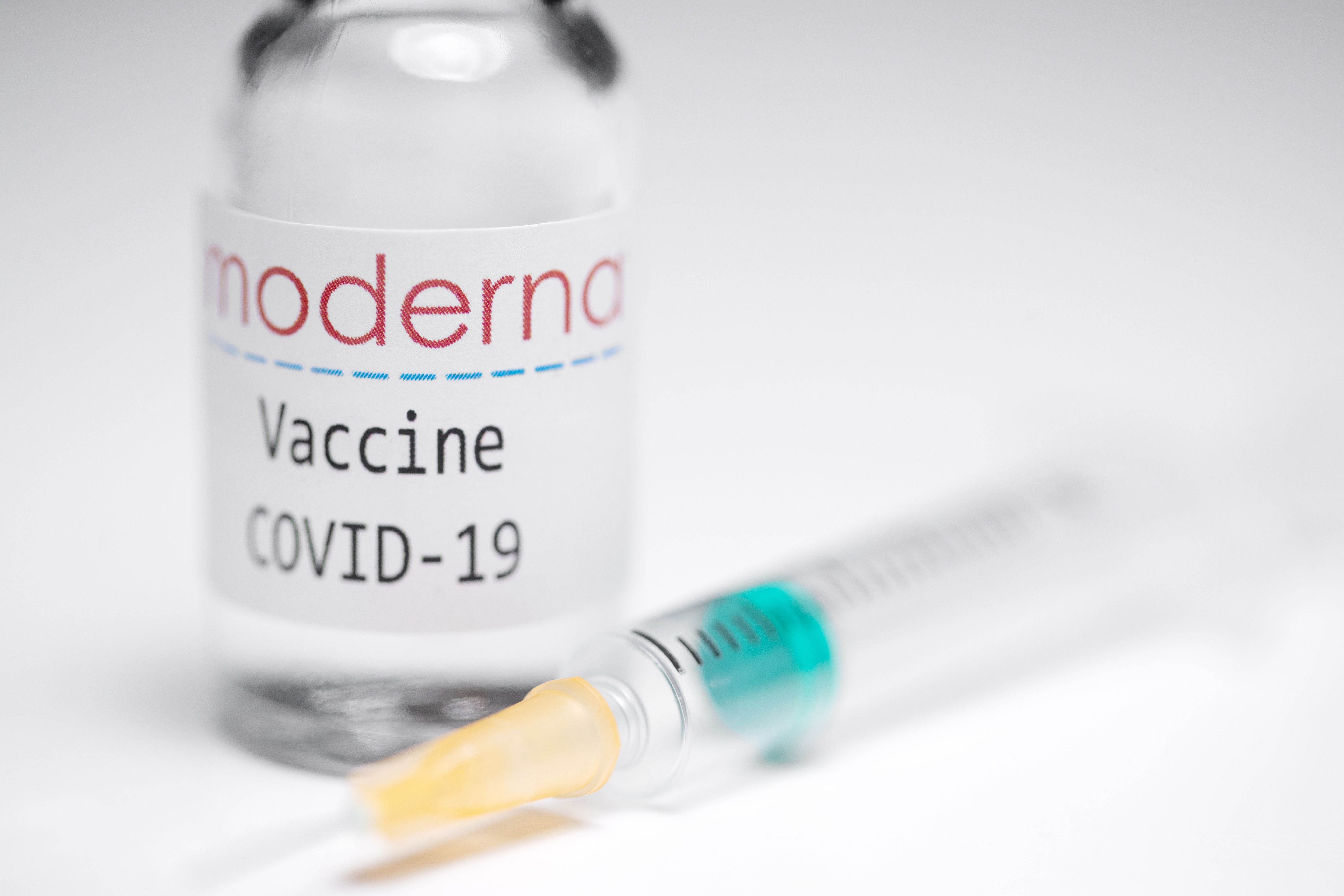Moderna’s coronavirus vaccine marks another important step in the right direction
If the current trajectory of progress continues, there’s every reason to believe that a corner will be turned in the new year. Samuel Lovett explains why there is cause to be both cautious and cheerful


Moderna’s announcement that its vaccine appears to be 94 per cent effective marks the latest step forward in the fight against Covid-19. Just one week after Pfizer’s historic breakthrough, humanity has been handed further hope that the pandemic will eventually be brought under control.
There is, of course, still a long way to go. Amid the excitement that follows news of this nature, it is easy to look past the dark winter ahead. Although both companies have said they expect to deliver millions of doses by the end of the year, this will not be enough to soften the blow of the ongoing second wave.
Nonetheless, the emergence of a second coronavirus vaccine adds to the growing light at the end of the tunnel.
Perhaps most significantly, it reaffirms the belief that an array of Covid jabs will likely be available to distribute and administer in the near future. For months experts have warned that a portfolio of vaccines will be needed to deliver worldwide coverage – and now the evidence suggests that such an ambitious goal is no longer beyond the realm of possibility.
The mRNA technology used to produce the Pfizer and Moderna vaccines has opened this door. Such a platform has never been authorised before, but the apparent success of these two candidates – both of which will be reviewed by the regulators in the coming weeks – suggests that other similarly designed Covid jabs may also be effective.
“This is a loud vote of confidence in RNA vaccine technology, which seems to be safe, acceptable and effective,” said Peter Openshaw, professor of experimental medicine at Imperial College London. “These results set a high bar for the other vaccines in the pipeline.”
Whether or not those future jabs – if and when they arrive – will reach similar levels of efficaciousness remains to be seen. Similarly, it is not yet known what sort of immunological response the Pfizer and Moderna vaccines trigger in at-risk groups, including the elderly and those with underlying health conditions.
Further analysis is ultimately needed to establish the facts. If the jabs prove ineffective in preventing disease among these individuals, hospitals and health services will continue to find themselves burdened by the needs of sick Covid patients, potentially diverting resources and care away from people suffering with other conditions.
“We will need much more data and a full report or publication to see if the benefit [of the Moderna vaccine] is consistent across all groups, notably the elderly,” said Stephen Evans, a professor of pharmacoepidemiology at the London School of Hygiene & Tropical Medicine. “But this is definitely encouraging progress.”
Then there are the elements specific to Moderna’s candidate which offer further cause for hope.
The biotech’s data indicates that the two-dose vaccine is effective among ethnic minority groups, having been tested on a diverse range of American volunteers. Such confirmation was missing from Pfizer’s provisional trial data last week, and will come as a relief for those who have suffered disproportionately throughout the pandemic.
Alongside this, Moderna revealed its vaccine can be stored at fridge temperature for 30 days, or -20C for up to six months. This crucial development should allow for the distribution and storage of doses in those communities that lack the technology needed to maintain the Pfizer jab, which requires a cold chain of -70C.
Of course, such countries need to get their hands on the Moderna jab in the first place: analysis suggests 71 per cent of the company’s 1 billion doses have already been secured by high-income nations through bilateral agreements. The failings of the global system to protect against vaccine nationalism will come at a cost – one that will be tragically paid by those pushed to the back of the queue.
Quite clearly, then, there is still much to be done – both in the sense of establishing the finer details of the Moderna vaccine data and also ensuring equitable access is guaranteed when it becomes available, along with the Pfizer candidate and others that follow.
From a UK perspective, the government has announced that 5 million doses have now been procured from Moderna, having previously overlooked the company for its national portfolio of vaccines. The European Union, in contrast, is in line to receive up to 160 million doses for its member states throughout 2021.
It is understood that the biotech does not currently have an advanced European supply chain in place, but is currently planning to “scale up” its capacity to deliver to the continent. As for the UK’s doses – which will be enough to vaccinate 2.5 million people – it’s unlikely these will available for distribution before the spring.
Our immediate hope for vaccination rests in the hands of Pfizer and the candidate being developed by Oxford University, of which the UK has ordered 100 million doses.
Amid all the uncertainty and questions that still surround the new coronavirus vaccines, there’s no doubt that all expectations concerning their effectiveness have been surpassed, pointing to the phenomenal scientific leaps that have been made throughout 2020. If the current trajectory of progress continues, there’s every reason to believe that a corner will be turned in the new year.



Join our commenting forum
Join thought-provoking conversations, follow other Independent readers and see their replies
Comments